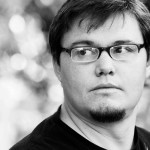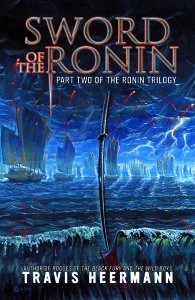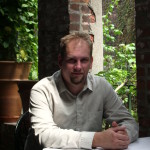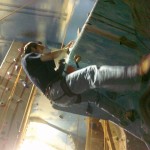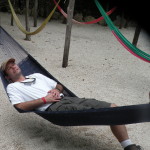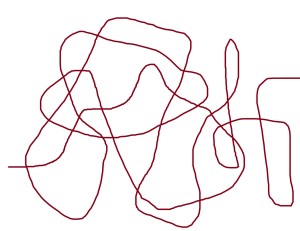
Progress rarely happens in a straight line. It isn’t steady. It isn’t stable. Rather, it happens in fits and starts. When you’re trying to lose weight, you plateau for long periods of time. Sometimes it’s hard to understand why those plateaus happen; if you’re doing the same thing that helped drop you from 220 pounds to 200, shouldn’t the same strategy drop you from 200 to 180? The answer is no. And the reason? It’s complicated.
Technology works the same way. For the longest time—thousands and thousands of years—humanity’s technological level remained static. Then came the renaissance! Followed by more static. Then came the industrial revolution, and in the blink of an eye we’re planning manned missions to Mars and walking around with internet-connected sunglasses controlled by rapid eye movement. Or something. I’m really not clear on the details.
Similar arguments could be made for any kind of long-term change—civil rights, human evolution, writing careers… Wait, go back. Writing careers? Well, this one should be obvious. You start writing those first words, full of excitement and promise, and then you hit your very first murky middle. Or maybe you make it past the middle but can’t stick the landing. Maybe you finish your first book easily, and maybe your second, too. No matter how long your roll lasts, I promise you this: it won’t last forever. You will plateau. And not just once, but many times. When these come along, they can be incredibly stifling. If you give in, you may never recover. You gotta show some tenacity.
The most successful people in any field or occupation are those who get to plateaus, realize they’re on a plateau, scope out ways to move on, and then take the next step. I realize how glib that sounds, but it’s basically the truth.
Instead of talking in abstractions, let me tell you about my plateaus. I’ve faced a couple of big ones.
In 1988, I decided I wanted to be a writer, so I began to write short stories. A lot of reputable genre writers recommend starting with short stories, so I was in good company right from the start. Still, I don’t think they meant these short stories; I was five years old, and they contained by own not-quite-in-the-lines crayon illustrations. My most successful literary achievement of this period was my breakout hit, Darryl Gets His Glasses. For the record, Darryl was a giant orange dinosaur of unknown genus. This was a real tour de force; those second-grade girls were weeping in the corners when I read it aloud following afternoon recess.
But those stories only took me so far. Sure, I had my fans, but my career was beginning to stagnate. I wrote and wrote and read and read, and you know what? I noticed that the biggest names in publishing weren’t getting famous off handwritten stories in primary school notebooks. After some serious soul-searching, I decided to take a bold step into the brave new world of fan fiction.
These were heady years, when words didn’t have to be good; they just had to exist. (Which was fantastic practice, by the way.) My fan fic quickly took the form of full-length novels. I wrote a couple of them, two in two years… and then rested on my laurels. I had done it! I was a writer. Welcome to Plateau #2.
By 1995, I was certain of one thing: my books were certainly as good as their professionally published counterparts (they weren’t). This false confidence led me to take the next step: investigate how to submit my fledgling literary Picassos to the big leagues. This was a critical step in mine and any writer’s development, and from it I learned I wasn’t as good as I thought I was. Oh yes, I was slapped down good and hard. It turned out my friends and family had lied to me about my wunderkind status, those sons of bitches. It turned out there were actual skills to pick up beyond just writing down whatever came to my head in the moment. Plateau #3.
I took better English courses, I read how-to-write books, I broadened my reading selections. When high school concluded, I went for a communications degree. This made me much better and I started to convince myself again that a writing career was possible.
And yet this was the longest and most tangled plateau of all. It was almost seven years between my last high school offerings and my first serious foray back into novel-writing. I got a lot of education, sure, but that didn’t seem to be enough. Indeed, I was trying to get ahead by following the same strategies as before—and those strategies were no longer as effective as they had once been.
The way forward this time was in meeting other writers, becoming part of a community of like-minded individuals, partnering with other people who shared my goals and aspirations. I found those at conventions and seminars. People and support structures, rather than skill alone, showed me how to get to the next level. That process started in 2010 and inspired me to get back down to business. I’ve written a half-dozen novels since then.
But you can never climb for long before reaching another plateau, as I have learned. Allow me to let you in on a little secret: I’m actually on a plateau again right now. My novels have gotten better, my support structures are stronger than ever, but I’m still not raking in the big bucks. Where are the shiny contracts? Where are my stacks of hardcover new releases?
Well, I’m working on that. Stay tuned!


